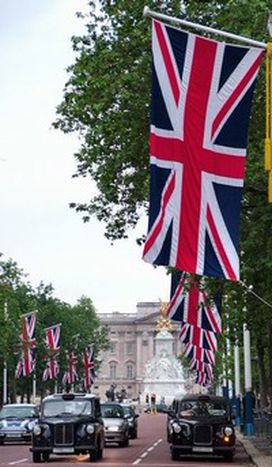
Britain’s ambivalence towards Europe
Published on
With Britain assuming the EU Presidency in July, and with it the task of restoring credibility to the EU, the time seems right to ask if Britain will ever be an integral part of Europe.
As a country made up of four diverse nations and a sizeable immigrant population, differences are widespread within the United Kingdom. Yet, despite divisions between its citizens and regions, some common themes can help explain the elusive concept of ‘Britishness’. The rich tapestry of British history is woven deep into its citizens’ collective psyche. Young Britons learn that their country was the first modern democracy, the first nation to industrialise, that it ruled over a vast empire, and was on the winning side in two world wars. Although it is not stated out loud, observes the renowned journalist Will Hutton, they feel special to be British.
Island mentality
Geography also plays a significant role in shaping British identity. Being separated from the continent has led Britons to adopt an island mentality which has added to feelings of ‘exceptionalism’. The fact that they were not occupied by a foreign power in the two World Wars represents another important difference with most of the continent. Perhaps most importantly, the majority of Britons speak only their native tongue, presenting further obstacles to their understanding of other European countries. Fuelled by centuries of conflict with mainland Europe and these feelings of superiority, British attitudes towards Europe have generally been sceptical.
Thus, as a medium-sized state with an illustrious past, Britain is trying to come to terms with its diminished role in the twenty-first century. The dilemma of how to reconcile Britain’s glorious past with a far more modest reality has plagued its citizens since 1945. Its ambiguous relationship with Europe reflects this post-empire identity crisis. While not fully committed to Europe (remaining outside the eurozone and Schengen area), Britain neither wishes, nor can afford, to go it alone.
Deep-rooted Euroscepticism
The problem is that concerns about being part of the EU have always existed at both ends of the political spectrum: to the Left the EU represents a capitalist club; while the Right fears a loss of sovereignty and the Franco-German axis. A 1980 episode of the political satire, Yes, Minister, famously described British foreign policy over the last 500 years as designed to break up Europe. Since then, one could be forgiven for believing this mischievous observation when reading the largely Eurosceptic British press. Indeed, the latter has played a key role in setting the agenda on European issues and has helped foster a suspicious image of the EU in the public mind.
For a generation, the majority of British press coverage on EU issues has been overwhelmingly negative and frequently jingoistic. As a result, Britons have persistently been misinformed about the EU because most of the press appeal to the country’s nationalist instincts and shun any informative, rational debate. Even though the Blair government is broadly pro-European, it has avoided confronting the press over Europe. Indeed, the main reason behind Blair’s decision to hold a referendum on the constitution was to prevent Europe becoming a damaging electoral issue. Moreover, Labour has used combative rhetoric about “red lines” and “defending the national interest” in order to appease the Eurosceptic uproar that greets each big European decision.
In the short-term, stormy times lie ahead for the UK Presidency as battles loom over the UK budget rebate and the future economic and social direction of the EU. On the other hand, and in contrast to many EU citizens, the British people are relatively confident about the future of European relations and have embraced the challenges of globalisation in a typically pragmatic manner. In addition, the UK has shed its ‘sick man of Europe’ tag and is now a dynamic, multi-cultural society boasting a successful economy, low unemployment and improving public services. Following recent EU enlargement, the No votes on the constitution and in the light of expected changes of government in France and Germany, a new dawn in European politics now beckons. Perhaps this changing landscape could encourage the British to accept the EU sooner than many think possible.



